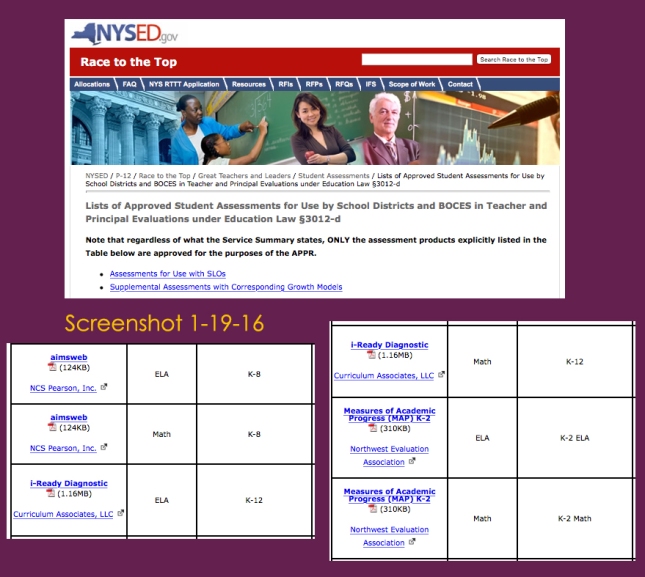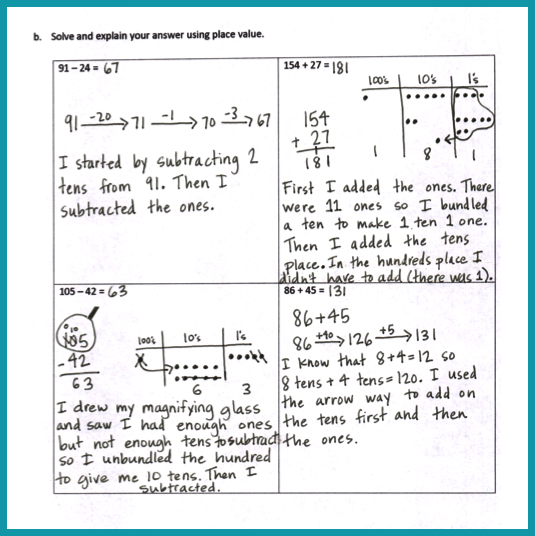
Some have made the case that Governor Cuomo’s Common Core Task Force Report conveys sweeping recommendations, and that once these recommendations are implemented by the Board of Regents we will see substantial change in New York’s public education system. This is a pipe dream. A sample of quotes from the Common Core Task Force Report reveal just how far off the mark the report is in addressing the concerns of parents and educators. It creates more smoke and mirrors than change.
“By giving great weight to the foundational skills required in today’s job market, education advocates believe that the Standards have the potential to begin to close the performance gaps that exist largely based on socio-economic differences.”
The Task Force Report does nothing to address the difficulties faced by under-resourced schools that have been labeled “failures” (based on flawed and socio-economically biased test scores). There is no evidence that high standards alone can close the achievement gap, or that arbitrarily more difficult standards without equitable school funding will have any positive effect. It is time to examine the impact of poverty on student learning rather than push experimental standards as a cure-all.
“The Kindergarten Standards could be revised……to provide pre-kindergarten and kindergarten teachers with the flexibility to differentiate instruction for students whose brains are rapidly developing.”
Standards are a progression. Each grade level set of standards is built on the ones from the grade before. While is it laudable that that the Task Force Report recommends revising the grossly inappropriate Common Core kindergarten reading standards, this will require a shift in every subsequent grade level reading benchmark as well.
“We know that students develop at different rates, and we want to ensure that teachers can differentiate and individualize instruction given to our youngest [kindergarten] students that is developmentally appropriate for each individual child— not linked solely to the child’s age.”
At what age is it appropriate to disregard the fact that all children develop at different rates? At what age is it OK to deny children developmentally appropriate instruction? Recommending changes to meet the needs of some children and not others conveys an unwillingness to create meaningful change, as well as a disregard for a research-based approach to elementary education.
“New York State was recently highlighted by the United States Department of Education as being a leader and model for other States in reducing the amount of time spent on testing, including the administration of local assessments.”
By boasting of New York’s past performance in reducing time spent on testing, the Task Force Report reveals that Task Force members have completely missed the point.
A 2015 study conducted by KT Tobin and Robin Jacobowitz of The Benjamin Center at SUNY New Paltz found that:
“The time for 3-8 testing in NYS, including the test itself and the fixed costs consume approximately 2 percent of the “required annual instructional hours.” This exceeds and is already double the 1 percent standard that was passed by the legislature.”
New York state’s 2014 ban on standardized testing for students in grades K-2 is a similar farce. These banned tests (including NWEA, Aimsweb, Star, and any multiple choice test) are actually permissible if they are for “diagnostic or formative purposes.” Since ANY assessment used for teacher evaluations can also be claimed as diagnostic and/or formative, there really is no ban on subjecting 5,6, and 7 year olds to inappropriate testing. In fact, NYSED lists several K-2 standardized tests as approved assessments for use in teacher evaluations.

“The new standards must help prepare students for a future that requires workplace and analytic skills, reading non-fiction, and new learning in technology applications. However, the standards must guide curriculum to fulfill these needs while still allowing for other texts that focus on creativity and cultural competency.”
Despite an overwhelming outcry against the prescribed ratio of nonfiction to fiction found in the Common Core, the Task Force Report doubles down on the practice of foisting informational texts on young children with the notion that they will need to read similar texts as adults. Any parent or educator would argue that developing a love of reading and a love of learning trumps all, and furthermore that this is developed by allowing children to select texts based on their interests. Creativity and cultural competency should not merely be “allowed” for young learners; it should be the focus of instruction.
It should be noted here that the Task Force Report fails to address any of the significant parents and educator concerns regarding the appropriateness of the Common Core math standards. Here is an example from Engage NY of an expected response on a 2nd grade Common Core math assessment.

“(the problem with) Kindergarten Standards is that they fail to include all of the domains of the Pre-Kindergarten Standards such as social and emotional development or approaches to learning….As part of its review, the State should work to incorporate these components into the Kindergarten Standards to encourage curiosity and creativity in our youngest students.”
Teachers do not need standards to encourage curiosity and creativity in their students. A focus on social and emotional development is just as important in 4th grade as it is in kindergarten. At what age is it appropriate to stop educating the whole child? Never. If we do not emphasize social and emotional competencies at every grade level, our children will emerge from school lacking the empathy, self-esteem, and collaborative abilities that they will need to be successful in life.
“Parents repeatedly raised concern over the third grade test being longer than the Regents exams.”
“The annual 3-8 ELA and Mathematics exams are too long….in some elementary-level schools students take between 360 and 540 minutes of tests whereas the SAT is only 225 minutes.”
“New York should follow the pattern set by these states (Texas, New Mexico, North Carolina) and shorten both the number of days and duration of testing sessions for all students in grades 3-8. The State should also formally study whether to further reduce the number of test days and duration of testing sessions for students in grades 3-5.”
North Carolina, Texas, and New Mexico are hardly positive role models for reduction in testing. In North Carolina, testing has been “reduced” to a 1 day, 3-4 hour exam. In Texas, testing has been capped so that the average student sits for 120 minutes of testing with no administration lasting more than 8 hours. And in New Mexico, testing has been reduced by a paltry 15%. In New York, that would reduce 9 hours of testing for 10 year olds to 7.5 hours. For a 5th grade student with special needs, a testing reduction from 18 hours to 15 hours is hardly a relief. The recommendation for yet another formal study to determine if it is appropriate for children to take tests that rival the SATs in length is ridiculous, and will only delay a significant reduction in testing.
“The State must draft new standards that recognize the balance between encouraging the development of the whole child while maximizing instructional time in school.”
The Task Force Report does an excellent job providing significant evidence that the past three years have been spent focused on harmful and flawed assessments at the expense of teaching and learning. Unfortunately, their recommendations will only lead to superficial change.
How many children will be able to recapture the joy of learning? After three years of ignoring the needs of the child, New York State must focus on restoring the health and wellbeing of our children and our schools, with no “balance” required.
In short, there are no recommendations contained within the task force report that will change the experience of children asked to sit for inappropriate, flawed tests this spring, or that of their teachers, who will continue to be evaluated by test scores (albeit different tests). Without real change, test prep will remain the norm, the curriculum will continue to narrow, schools and students will be labeled failures, and our children will be denied the education they deserve.
Bianca speaks truth for we in the trenches. Ask your local teachers what is going on. They must use their voices to end this nightmare…silent revolutions are great, but our government and the BOR can’t hear you unless you speak loud and clear!
LikeLike
The only way to fix common core is to throw it out, all of it. Get the feds and big business out of our schools. Leave our children alone. They are not products, or widgets.
LikeLike
Pingback: The NYS Common Core Task Force Report Taken to Task | christybez